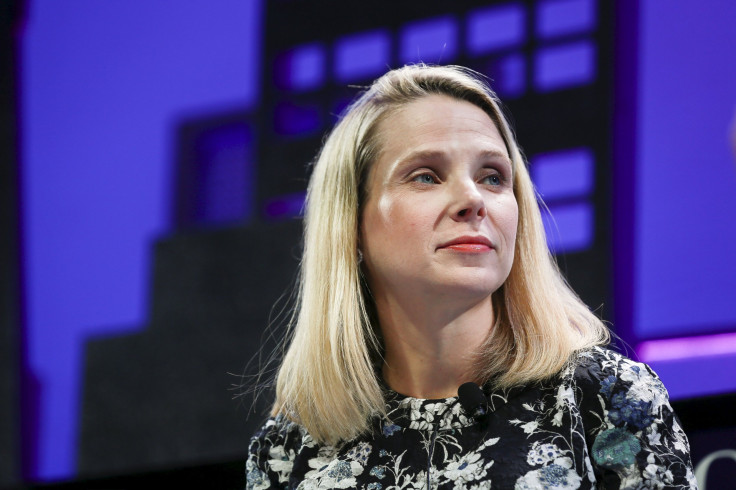What's Going To Happen To Yahoo? 5 Things To Know About The Spinoff, Alibaba And Possible Buyers

Web search pioneer Yahoo Inc. announced Wednesday that it will spin off its core business into a new company and not its 15 percent stake in Chinese e-commerce giant Alibaba Inc., which it had announced in January. This means that soon, new Yahoo will be just old Yahoo again, and that means perpetually on the block.
Here are five things to know about the reverse spinoff.
1. Why did Yahoo suddenly change course and decide not to spin off its Alibaba stake? Taxes. Since announcing the plan in January, Yahoo management had repeatedly assured shareholders that the spinoff would be tax-free. But in September the Internal Revenue Service disagreed, and Yahoo's stock price fell as investors started to factor in the tax ramifications. Since then, the stock rebounded, but market fears over a monster tax bill eventually killed the deal, as Yahoo executives acknowledged in the company's statement and on TV Wednesday.
"We did see indication, certainly in the market, around tax uncertainty and the duration of time it might take to get to resolution," Mayer said in a Wednesday morning CNBC interview. "Given that, we feel it's prudent at this time to look at alternatives like the reverse spin."
2. What is a reverse spinoff, anyway? A classic spinoff is when a public company splits off one of its auxiliary business units into a new, separate public company whose shares are distributed proportionally to the original company's stockholders. That was Yahoo's initial plan for its Alibaba holdings. A reverse spinoff is essentially the same process, but with the core company being transferred to the new entity.
3. Wall Street values Yahoo's core Internet businesses at close to zero. Does this mean it's worthless? No, not by a long shot. Yahoo's core business, which includes search, Yahoo Mail, Yahoo Sports and Tumblr, generates about $1 billion in earnings before interest, taxes, depreciation and amortization, or EBITDA, a popular metric used to value companies. It also has about a billion monthly users. There's also the fact that the sum-of-its parts valuation doesn't include a discount for any taxes Yahoo might have to pay in selling its stakes in Alibaba and Yahoo Japan, a joint venture with Japanese conglomerate SoftBank. Starboard Value, a hedge fund that agitated for Yahoo to sell its core business, calculated that Yahoo's core business is valued at what it called a "meager" two times EBITDA, even after subtracting the maximum potential tax liability for selling off Alibaba and Yahoo Japan. Analysts surveyed by the New York Times estimate the core business of Yahoo is worth somewhere between $3 billion and $8 billion. However, Mayer and Webb told CNBC they're not considering selling off Yahoo's core Internet businesses, including its search, mail and the Tumblr blogging platform.
4. Who might be interested in picking up "old Yahoo" if the company changes its mind? Media and telecom companies and private equity firms. Verizon bought AOL for $4.4 billion earlier this year, proving there's a market for legacy web companies with content and online advertising technologies. Like AOL, Yahoo has both of these and a lot more users. Verizon and IAC/InterActive Corp. are said to be considering a bid on Yahoo, and given the cash Yahoo generates it's a natural deal for private equity, particularly if they can get it for a low multiple of earnings. Yahoo has a massive head count and generous employee compensation, two things private equity firms tend to chop.
5. What's going to be left after the reverse spinoff, and when will it be completed? Just Yahoo's stakes in Alibaba and Yahoo Japan. Yahoo will transform from one of the iconic early Silicon Valley companies into a holding company for Asian investments. In its announcement, Yahoo said it expects the deal to take a year or more to complete, due to the need to prepare audited financial statements, and get approval from shareholders, regulators and third parties. A simple sale of Yahoo's core business would take substantially less time, but as of today, that's not in the cards.
© Copyright IBTimes 2024. All rights reserved.




















